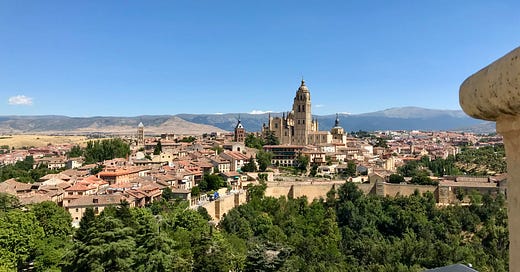All eyes were on Europe over the weekend. The raging fires in Greece and the elections in Spain of course made headlines. With economic uncertainty, unchecked immigration, costly climate measures and cultural anxiety with by the way a war raging on its doorsteps, Europe is not in a great spot. We discussed the chaos in France, the collapse of the Dutch government, Greece’s turn right as well as Italy’s new right of center leader here before. Voters are increasingly turning on incumbents and, as it seems, looking for alternatives that are mostly on the right side of the political spectrum. That turn is often split between the traditional more moderate right-of-center parties and newer, non-establishment hardcore varieties. According to polls, Spain’s governing socialist party (PSOE) of prime minister Pedro Sanchez was slated to lose yesterday’s vote to a right-of-center block consisting of the conservative party (People’s Party) and the far-right populist Vox party. As of this writing it appears that the People’s Party won big, but just not enough to build a workable majority in the Spanish parliament even with Vox’ support. So Spain is up for a period of potential instability as the parties try and make sense of the new landscape. A new election may be held to break the likely deadlock.
The turn on incumbents is often driven by the disagreeable nature of an establishment political framework with little in the way of fresh faces, or more importantly, fresh ideas. The aftermath of the Dutch PM’s fall from grace was an almost mass resignation of all key party leaders, from left to right. More importantly, the traditional left resolved to merge (the Labour Party hooked up with the Green Left) and bring in a new leader to contest the November parliamentary elections. The centre-right People’s Party for Freedom and Democracy also recruited a new leader. You may be able to imagine the uproar, not to mention the wild character assassinations when it was announced that the newly energized left selected an old party stalwart, the current European Commission's vice president in charge of the EU’s Green Deal, Frans Timmermans. In an area of increasing skepticism about incumbents, the new left-of-center alliance is taking an extreme risk in picking an older guy who the Dutch have come to call ‘climate pope’. The centre-right has found a route that inspires and is way more reflective of the new Europe by picking Dilan Yeşilgöz-Zegerius as its likely leader. A forty-something refugee from Turkey who made her way up through Amsterdam city council and parliament and is currently serving as Justice Minister, Yeşilgöz brings everything to the ticket that Timmermans does not have. Together with the farmer movement leader Caroline van der Plas (who is half-Irish and modest enough to point out she may not be the new prime-minister even if she would get the votes) it may well be that two energetic right-of-center women will give the climate pope a run for his money. But to be clear, we got four months to go here before the election so anything is still possible. It is just worth mentioning where the energy and ideas are currently being generated: not on the left and certainly not by any of the incumbent parties.
That should also be of note when looking at what is happening in Canada. At eight years and with an impressive laundry list of scandals and ill-conceived policies, Justin Trudeau is running out of steam. And frustrations are running high as evidenced by his ranking as the worst recent prime minister, as well as a visit to the town of Belleville in Ontario last week that ended not in the way it was probably planned. Or did it? Some argue that the right-wing hysteria surrounding Trudeau could actually work in his favour and that the PM’s handlers are happy with the material it provided. Maybe yes, but if Taylor Swift is not answering your tweet, you are in big trouble. As are most incumbent leaders. It will be an interesting fall season politically, globally.
Photos: in trying to keep with original content I needed to look for Spain photos in my collection. This is Segovia in central Spain which we visited in 2018. The second one of course are Dilan Yeşilgöz-Zegerius and Frans Timmermans.



